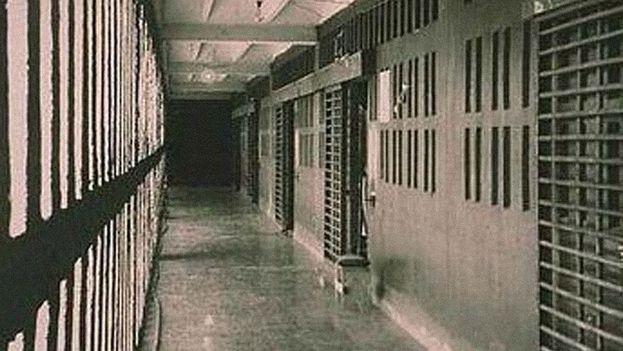
14ymedio, Manuel Alberto Morejón, Havana, 30 December 2015 – From Havana, the supervisor of the Christian Alliance sent 14ymedio several prisoners’ testimonies collected in the Valle Grande prison, which make up a small sample of the abuse they are subjected to by the guards.
On 17 November 2014, at 10:00 am, First Lieutenant Maceo, known as “The Lasher,” took the hoses to Roberto Hernandez without caring that he was under psychiatric treatment. Hernandez, known as “El Loco,” is 32 and lived in Havana’s Plaza district, before entering Valle Grande prison where he received the beating.
Valle Grande belongs to the Department of Penitentiary Establishments of the Ministry of the Interior (MININT), and is located in Arroya Arenas on the outskirts of Havana. Like all MININT departments, the penitentiary has multiple and sophisticated control systems to silence complaints coming from the prisoners, or to filter those that suit them. But, at times, the voices of the prisoners leak out through the bars to describe the realities that are hidden in Cuban jails. Many of them relate to the lack of attention to inmates’ health.
Raul Garcia Ramos, age 55 and a resident of Regla, is another example. Despite being ill with cirrhosis of the liver and cancer of the esophagus, he was refused medical care. In addition, Garcia has been in prison since 2 June 2015, awaiting trail for the alleged crime of “threat.”
As of 16 December, Hugo Damian Prieto Blanco, age 50, a resident of Marianao and an organizer for the Orlando Zapata Tamayo Civic Resistance Movement, demanded political prisoner status via a hunger strike. Two days after the beginning of his protest, Prieto was transferred to Valle Grande and his whereabouts are unknown. The activist, who is diabetic and has pancreatic disease, has not been well cared for and also demanded better health care for the inmates.
Far from solving anything, the prisoners’ complaints and demands seem to only aggravate their situation. Lamberto Hernandez Planas, 46, a resident of the San Miguel del Padron neighborhood in Havana, complained about the lack of hygiene to El Niño, the officer guarding the dining room, because the food trays were caked with grime. El Niño threatened to give him a beating and said that, if he didn’t like the food, don’t eat it.
That day Hernandez went without eating, but his problems go deeper. His clinical history, issued by the Combinado del Este National Hospital for Inmates, indicates he suffers from peripheral neuropathy, gout, high cholesterol, a herniated disc, gastritis, esophagitis, malnutrition and low back pain. In this situation, recognized by the prison authorities, he requires a special diet that he is not being provided.
While the beatings of opponents, including the Ladies in White, who protest in the streets of Havana find some echo in the international press and human rights organizations, little information comes from the prisons where the inmates are totally defenseless.
